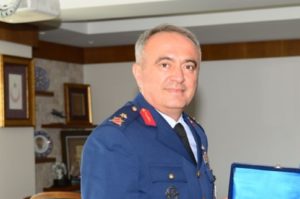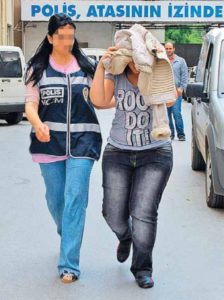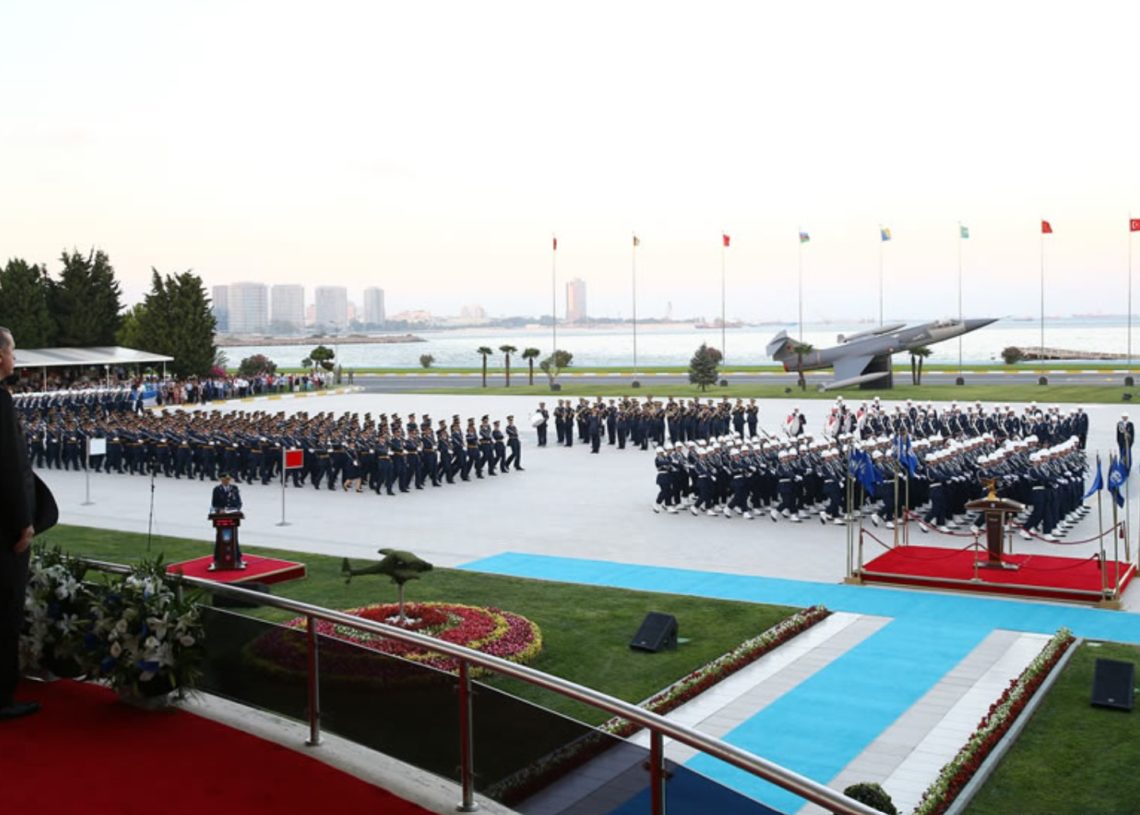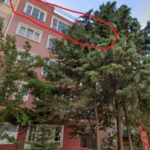A brigadier general in Turkey’s Armed Forces (TSK) who leaked confidential NATO documents to a gang has been promoted by the government of President Recep Tayyip Erdoğan, which appointed him as commander of the Air Force Academy (Hava Harp Okulu).
Alparslan Yücel Soysal, a colonel at the time of the scandal, was identified as one of the senior officers who were compromised for leaking classified military documents to an organized crime syndicate in Turkey in exchange for sexual favors, according to the indictment filed in Izmir in February 2011.
He was exposed when the police raided the home of Narin Korkmaz, a key suspect in the syndicate, only to discover a hard drive with a file that listed the names of 279 military officers who were lured in honey trap schemes where women were directed to have sex with targets in order to extract information and obtain secret documents.
The female operative who slept with Soysal turned over the documents she obtained from him to her handlers in the criminal enterprise and added his name to a list of people who were profiled in the syndicate archive. The profile note in the list next to Soysal’s name states the following:
“The documents belong to NATO. They explain in detail the tasks of bomb squad teams in NATO countries and the capabilities of EOD [Explosive Ordnance Disposal] teams for each force unit. We included a Turkish translation of some of it. They contain important information for countries other than NATO members, especially Russia, Iran and China.”
He was marked as an asset who will be worked with in leaking further documents from the Turkish military.
Interestingly Soysal was listed as a victim in the indictment rather than a suspect, and the government hushed up the case during the trial stage. Fearing further exposure, Soysal did not want anything to do with the case when the gang members were indicted. He did not want to participate in the hearings and filed no complaints against those in the organized crime syndicate who had profiled him.
During the trial, it was revealed that the extent of the gang’s infiltration into the Turkish military was extensive and that the kind of classified documents leaked from NATO’s second largest army in terms of manpower was damaging. They compromised not only Turkey’s security but also that of the NATO alliance.
For example, a suspect named Aydın Şit, an air force officer, handed over FBI bomb-making analyses to the gang that explained how to manually make improvised bombs and where in the car these bombs should be planted. Suspect Ersin Kapucu, an air force pilot, was identified as an important source for electronic warfare data and information on how it is used in the Turkish Air Force and NATO. He supplied 22 Powerpoint presentation files dated 2009. A note in his file says he was soon expected to supply passcodes, which the gang believed would be very beneficial.
Suspect Nuri Dereli, a flight lieutenant, supplied the gang with a sensitive file called “Tur_AEM_F16.pdf,” which was 954 pages long in English and classified as “Secret Releasable to USA, TUR.” It details technical, tactical and procedural data for F-16 fighter jets. The note attached to this file says it should not be obtained by anybody else. It even warned that when a file of a similar nature was previously leaked, it created problems between Turkey and the US. “I repeat, it should not be leaked in order to not experience similar problems with the US,” the note added.
Similarly, suspect Okay Yalçın, an air force officer, leaked sensitive information on US-made Hawk medium-range surface-to-air missile systems, including a 24-page secret document titled “60G-2-2-70 Hawk Passive Engagement System.pdf.” Another document explains how the munitions loaded on F-16s should be used and under what conditions. It says this document cannot be transferred to any country other than Turkey and the US.

The indictment identified the leader of the crime syndicate as Bilgin Özkaynak, a businessman, with Korkmaz as his aide. The prosecutor demanded life sentences for 11 suspects, including Özkaynak and Korkmaz, on charges of establishing and running an illegal organization; illegally obtaining secret military and personal information; sharing that information with third parties; and endangering state security.
The criminal case against the gang members was quashed by Erdoğan, and all suspects were let go. Many returned to their duties in the Turkish military, advancing in the ranks despite their controversial records. The prosecutors and police chiefs who exposed the gang and investigated their activities were prosecuted.
Soysal was in charge of the Central Command in the 3rd Main Jet Base in Konya during a failed coup in 2016 but was not on the base as he was on leave. He was spared from the mass purge instigated by President Erdoğan that crippled the Turkish military.
Erdoğan promoted him to brigadier general in 2018 and made him commander of the Air Force Academy a year later.

The Turkish government shut down the Air Force Academy on July 25, 2016 in the aftermath of the failed coup, which was devised to create a pretext for a mass purge of the armed forces. Cadets who were studying at the Air Force Academy were targeted by the Erdoğan government with dismissal and wrongful prosecution. Although the evidence showed that none of the cadets were actually involved in the coup, prosecutors acting on orders from the government launched criminal probes and filed indictments against hundreds of Air Force Academy students, demanding life sentences.
The government not only closed the Air Force Academy and stripped the title of officer from all of that year’s new graduates, it also transferred cadets who had not graduated or were still studying to other universities that have nothing to do with military training. It reopened the Air Force Academy again in February 2017 under the newly established National Defense University but found it difficult to attract new students.
The reopening came after the Air Force faced a shortage of 1,154 pilots in January 2017 and the ratio of aircraft seats to pilot plunged to almost three to one, an alarming figure. The government tried to recall some retired pilots or those in private industry with little success as many did not want to go back for financial reasons as well as the climate of fear in the military over the purges.
Among the 4,215 military members fired from the air force by executive decision, 32 were generals, 2,059 were lower-ranking officers and 1,993 were noncommissioned officers. Most had nothing to do with the very limited mobilization that corresponded to only 1 percent of the Turkish military during the failed coup. Almost one-third of the purged pilots had staff rank, which means they were commanders and veterans who were in charge of bases, fleets and squadrons.

by Abdullah Bozkurt
Source: Nordic Monitor



